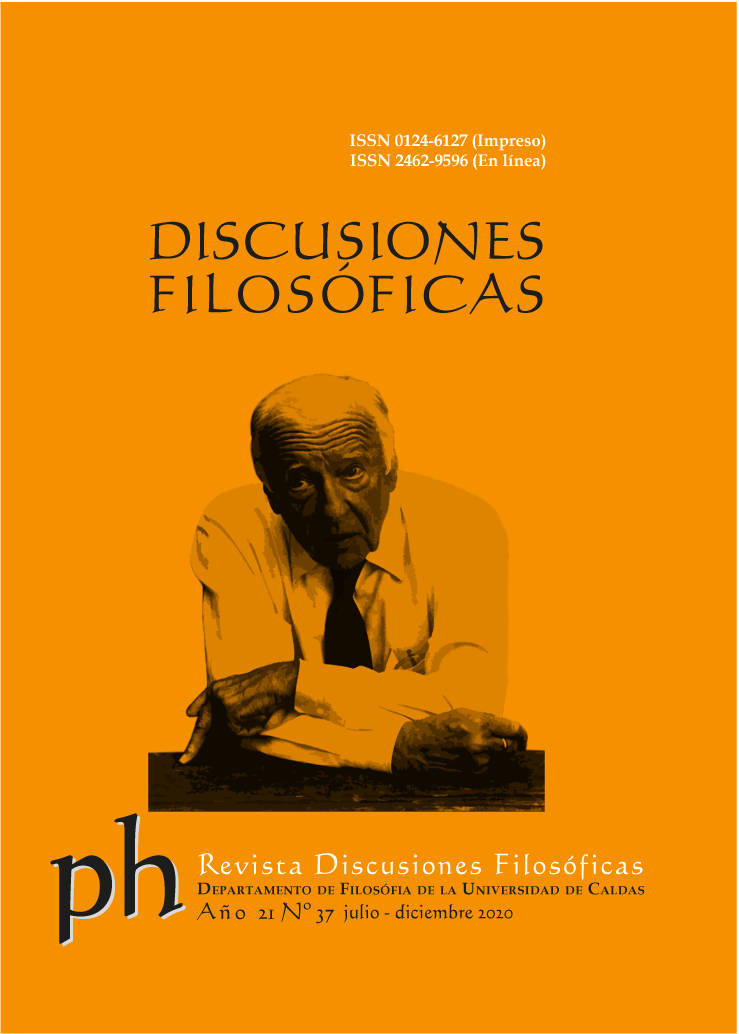Authors
Abstract
The aim of this paper is to briefly present three streams of selective realism, namely structural realism, explanationism, and entity realism, and their relation to scientific realism in general. Firstly, we define philosophical realism; then, scientific realism and selective realism are both characterized. The
hypothesis is that the main virtue of selectivism is being able to respond to the problem of unobservable entities in science and to the problem of the historical meta-induction of theories, something that connects it with other realistic proposals. This hypothesis is corroborated in the sections dedicated to these currents, which have the same structure: first, the answer they give to the problem of entities is exposed, followed by the answer to the theoretical problem that the meta-induction argument implies. After all this, there are also some open criticisms of each current.
References
Chakravartty, Anjan, “Scientific Realism”. The Stanford Encyclopedia of Philosophy. Web. 17/04/2020. https://plato.stanford.edu/archives/sum2017/entries/scientific-realism/
Cordero, Alberto. “Sobre el mito de que el realismo científico ha muerto”. Areté. Revista de Filosofía, 21, 2, 2009, pp. 363-379.
---. “Mitos y falsedades sobre el realismo científico”. ArtefaCToS. Revista De Estudios Sobre La Ciencia y La Tecnología, 7, 2, 2018, pp. 9-33.
Diéguez, Antonio. “Realismo Científico”. Enciclopedia de Filosofía de la Sociedad Española de Filosofía Analítica. Web. 02/02/2020. http://www.sefaweb.es/realismo-cientifico/
Ferraris, Maurizio. Manifiesto del nuevo realismo. Ariadna Ediciones, 2012.
Hacking, Ian. Representing and Intervening. Cambridge University Press, 1983.
Iranzo, V. “El dilema del realismo experimental”. Episteme NS, 28, 1, 2008, pp. 59-88.
Ladyman, J. Understanding Philosophy of Science. Routledge, 2002.
Lakatos, I. The Methodology of Scientific Research Programmes. Cambridge University Press, 1978.
Laudan, L. “A Confutation of Convergent Realism”. Philosophy of Science, 48, 1, 1981, pp. 19-48.
Madrid-Casado, C. “Sr. Realista Estructural, tenemos un problema: la carga ontológica de las matemáticas”. Principia, 14, 2, 2010, pp. 201-209.
Psillos, S. Scientific Realism: How Science Tracks Truth. Routledge. 1999.
Rivadulla, A. “Two dogmas of structural realism. A confirmation of a philosophical death foretold”. Crítica, 42, 124, 2010, pp. 3- 29.
Stanford, Kyle, “Underdetermination of Scientific Theory”. The Stanford Encyclopedia of Philosophy. Web. 30/06/2020.
https://plato.stanford.edu/archives/win2017/entries/scientific-underdetermination/
Suárez, Mauricio. Filosofía de la ciencia. Historia y práctica. Alianza, 2019.
Van Fraassen, Bass, Chakravartty, Anjan. “What is Scientific Realism?”. Spontaneous Generations: A Journal for the History and Philosophy of Science, 9, 1, 2018, pp. 12- 25.
Worrall, John. “Structural realism: The best of both worlds?”. Dialectica, 43, 1-2, 1989, pp. 99-124.

 PDF (Español)
PDF (Español)
 FLIP
FLIP





























